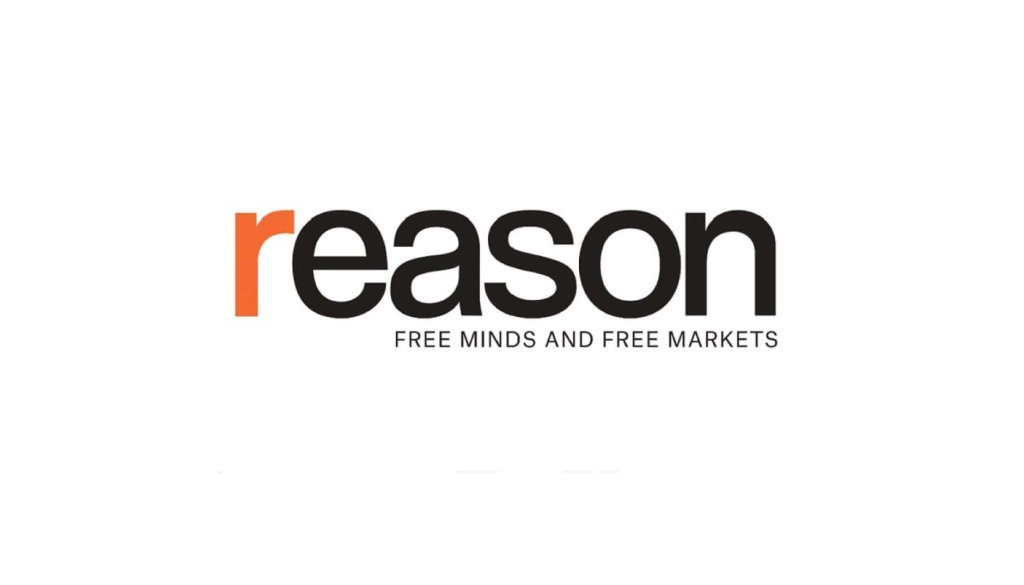Everybody Hates Prices
The Wendy’s Baconator is a beast of a burger. Introduced in 2007 as part of a back-to-basics rebranding of the perpetual fast-food underdog, the Baconator consists of a half-pound of beef, multiple slices of gooey American cheese, and six pieces of bacon, plus condiments. It contains 57 grams of protein and just shy of a thousand calories—about half the daily recommended intake for an average person, and more than twice the average caloric intake of the estimated 800 million people globally who are perpetually undernourished.
How much would you pay for a miracle food like the Baconator? How much should you pay? Sen. Elizabeth Warren (D–Mass.) has some ideas.
In February, Wendy’s CEO Kirk Tanner announced the burger chain would invest $20 million in digital menus. These virtual menu screens would allow the company to experiment with dynamic pricing—which is to say, pricing that changes regularly based on circumstances.
Tanner’s announcement led to news stories saying the company planned to test out “surge pricing,” a strategy most commonly associated with ride-sharing companies whose prices rise with demand. Try hailing an Uber at rush hour, or after a big game in a downtown area, and you’ll pay more than you would for the same ride on a quiet weekday afternoon. Wendy’s, the stories suggested, might be planning to charge more for its meals during lunch and dinner rush hours.
Warren wasn’t having it.
On X, she wrote that the move meant “you could pay more for your lunch, even if the cost to Wendy’s stays exactly the same.” That would not be acceptable. “It’s price gouging plain and simple,” she wrote, “and American families have had enough.”
One is tempted to respond, “Senator, this is a Wendy’s.”
Wendy’s eventually clarified there were no plans to introduce surge pricing in their dining rooms. But as is so often—and so unfortunately—the case, Elizabeth Warren had a plan. Two years earlier, she’d introduced a bill, the Price Gouging Prevention Act of 2022, that would have given the federal government sweeping power over the price of food and other goods.
Characterized by its supporters as a sensible federal expansion of existing price gouging laws, necessary to combat rapidly rising inflation, the bill text declared it “unlawful for a person to sell or offer for sale a good or service at an unconscionably excessive price during an exceptional market shock.” To prevent this sort of extreme pricing, the bill would have empowered the Federal Trade Commission to block, investigate, and fine any company, in any part of a supply chain, from retail sellers to wholesale producers, who participated in a scheme to charge an “unconscionably excessive price.”
What sort of price hike would count as “unconscionably excessive”? The bill didn’t define the term, leaving that to federal bureaucrats to decide. But given Warren’s outrage at Wendy’s supposed surge pricing, one suspects that variably priced Baconators in the years after a pandemic might have qualified.
I will grant that the carnivorously bloated Baconator itself might be unconscionably excessive as a foodstuff. But Warren’s online complaints and history of legislative threats hinted at something far worse: a proposal for what amounted to federal price controls.
Warren’s price gouging law was introduced in 2022, as postpandemic inflation brought surging prices for groceries, gasoline, automobiles, housing, and the computer chips necessary for everything from AI to video game consoles. The Wendy’s fracas came two years later, as the rate of inflation cooled but, thanks to stubbornly elevated prices, food costs remained a top issue for voters.
What all of it revealed was something that economists, historians, and inflation experts know all too well: People hate prices. They hate rising prices. They hate persistently high prices. They hate complicated prices. They hate resort fees and bag-check charges and delivery costs and service fees. At times they even hate falling prices, like on homes they already own. They even hate flat, dependable, unlimited-use subscription prices when they have too many of them.
It’s not too hard to understand why people hate prices. Prices, left to do their work, are signals—about value, about rarity, about cost in time and resources, about sentimentality, about desirability, about the labyrinthine machinations of global supply and demand.
Prices, in other words, deliver information. And in many cases, the information they deliver is that you can’t have everything you want.
Politicians like Warren, meanwhile, are in the business of falsely promising that actually you can. Failing that, they are in the business of masking, manipulating, capping, controlling, and otherwise distorting prices in hopes of hiding the information that prices convey. Price controls and their ilk are a politician’s way of lying to you about what something is worth.
It’s not just Elizabeth Warren. As inflation surged, politicians from both parties, including presidential nominees Donald Trump and Kamala Harris, sought to cap or control prices for food, credit, medical care, labor, and more. Activists have concocted narratives about intensifying corporate greed, and academics have pushed sweeping price controls in response.
In other words, price controls have returned to the center of American political discourse. But there is no reason to think they have suddenly become valuable tools of public policy. On the contrary, price controls are just as dangerous and destructive as ever—and just as appealing to clueless politicians.
A Nation of Price Controls
Despite certain pretenses to being a country with free markets, if you look around at t
Article from Reason.com

The Reason Magazine website is a go-to destination for libertarians seeking cogent analysis, investigative reporting, and thought-provoking commentary. Championing the principles of individual freedom, limited government, and free markets, the site offers a diverse range of articles, videos, and podcasts that challenge conventional wisdom and advocate for libertarian solutions. Whether you’re interested in politics, culture, or technology, Reason provides a unique lens that prioritizes liberty and rational discourse. It’s an essential resource for those who value critical thinking and nuanced debate in the pursuit of a freer society.




